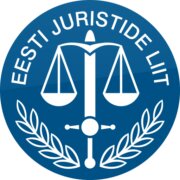Best Housing, Construction & Development Lawyers in Tallinn
Share your needs with us, get contacted by law firms.
Free. Takes 2 min.
Free Guide to Hiring a Real Estate Lawyer
List of the best lawyers in Tallinn, Estonia
About Housing, Construction & Development Law in Tallinn, Estonia
Tallinn, the capital city of Estonia, has a well-developed legal framework governing Housing, Construction, and Development activities. These laws protect the rights and interests of property owners, tenants, and developers, and ensure that buildings meet safety and quality standards. Understanding these laws is crucial for anyone involved in property transactions, construction projects, or development in Tallinn.
Why You May Need a Lawyer
There are several situations where seeking legal advice from a lawyer specializing in Housing, Construction, and Development can be beneficial:
- Buying or selling property: A lawyer can help review contracts, negotiate terms, and ensure the legality of the transaction.
- Landlord-tenant disputes: If issues arise between landlords and tenants, a lawyer can provide guidance on rights, responsibilities, and dispute resolution.
- Construction projects: A lawyer can navigate permits, zoning regulations, and contracts, ensuring compliance and protecting your interests.
- Disputes with contractors or developers: If problems occur during construction or development, a lawyer can assist in resolving conflicts and seeking appropriate remedies.
- Planning and development permits: Obtaining necessary permits and complying with local planning regulations often requires legal expertise.
Local Laws Overview
Below are key aspects of local laws relevant to Housing, Construction, and Development in Tallinn, Estonia:
- Building regulations: Tallinn enforces strict building regulations to ensure structural safety, energy efficiency, and adherence to aesthetic standards.
- Planning and zoning: Specific areas in Tallinn have distinct zoning regulations, determining the type of properties allowed, land use restrictions, and building height limitations.
- Tenant rights: Renting laws protect tenants' rights, including rent control, eviction regulations, and maintenance responsibilities.
- Real estate transactions: Rules and procedures govern property transfers, registration, and taxation in Tallinn. The Land Registry holds essential information regarding property rights.
- Building permits: New construction, renovation, or demolition projects require proper permits from the relevant local authorities. Compliance with building codes and safety regulations is mandatory.
Frequently Asked Questions
1. Can a landlord increase my rent arbitrarily?
No, landlords in Tallinn cannot raise rent arbitrarily. Rent increase limitations are specified by local rent control laws. Any rent increase above these limits must be agreed upon with the tenant or approved by an appropriate authority.
2. What should I do if I discover construction defects in my newly purchased property?
If you notice construction defects in your newly purchased property, you should consult with a lawyer specializing in construction law. They can advise you on potential remedies, such as negotiating repairs, seeking compensation, or even canceling the purchase contract.
3. What permits do I need for a small construction project on my property?
The permits required for a small construction project depend on the nature and scale of the work. It's advisable to consult with the local municipality to determine the necessary permits, which may include building permits, planning permission, and zoning variances.
4. What rights do tenants have regarding repairs and maintenance?
Tenants in Tallinn have the right to live in a well-maintained and habitable property. Generally, landlords are responsible for providing and maintaining essential services and making necessary repairs. Any disputes should be addressed through communication, and legal action can be taken if the landlord neglects their responsibilities.
5. How can I verify the ownership of a property in Tallinn?
You can verify the ownership of a property by searching the Land Registry. This public record contains information about property ownership, encumbrances, and any existing mortgages. A lawyer can assist you with obtaining accurate and up-to-date information from the Land Registry.
Additional Resources
For further assistance or information, you may find the following resources helpful:
- Tallinn City Government: The official website of the Tallinn City Government provides information on local laws, permits, and regulations related to Housing, Construction, and Development.
- Estonian Bar Association: The Estonian Bar Association is a professional organization representing lawyers in Estonia. Their website offers a directory to find legal professionals specializing in Housing, Construction, and Development law.
Next Steps
If you require legal assistance in Housing, Construction, and Development matters in Tallinn, Estonia, the following steps are recommended:
- Evaluate your situation: Assess your specific needs and identify the areas where you require legal advice or representation.
- Research and shortlist lawyers: Look for lawyers or law firms specializing in Housing, Construction, and Development law in Tallinn. Consider their expertise, experience, and client reviews.
- Schedule consultations: Contact the selected lawyers or law firms to schedule initial consultations. Discuss your case, legal fees, and determine if they are a suitable match for your needs.
- Select a lawyer: After considering the consultations, choose a lawyer who best understands your situation and can effectively represent your interests.
- Engage the lawyer: Work with your chosen lawyer to provide necessary documentation, discuss legal strategies, and proceed with your Housing, Construction, and Development matter.
Lawzana helps you find the best lawyers and law firms in Tallinn through a curated and pre-screened list of qualified legal professionals. Our platform offers rankings and detailed profiles of attorneys and law firms, allowing you to compare based on practice areas, including Housing, Construction & Development, experience, and client feedback.
Each profile includes a description of the firm's areas of practice, client reviews, team members and partners, year of establishment, spoken languages, office locations, contact information, social media presence, and any published articles or resources. Most firms on our platform speak English and are experienced in both local and international legal matters.
Get a quote from top-rated law firms in Tallinn, Estonia — quickly, securely, and without unnecessary hassle.
Disclaimer:
The information provided on this page is for general informational purposes only and does not constitute legal advice. While we strive to ensure the accuracy and relevance of the content, legal information may change over time, and interpretations of the law can vary. You should always consult with a qualified legal professional for advice specific to your situation.
We disclaim all liability for actions taken or not taken based on the content of this page. If you believe any information is incorrect or outdated, please contact us, and we will review and update it where appropriate.














